The pancreas is the second largest gland in the body and provides the production of hormones and digestive enzymes. It is an external and intrasecretory gland.
The pancreas produces hormones that ensure the breakdown of fatty acids necessary for kidney, heart, and muscle function. The pancreas is also responsible for producing hormones that regulate sugar levels (insulin, glucagon). It secretes ghrelin, which is responsible for food cravings. It participates in metabolic processes: fat, carbohydrate, and protein.
The pancreas is also responsible for the production of enzymes necessary for digestion. The key task of enzymes in the metabolism of carbohydrates, proteins, and fats.
When one function fails, others remain normal, due to the division into different departments responsible for enzyme/hormone production. Thus, in diabetes mellitus, there are no digestive disorders, and suffering inflammation of the organ does not necessarily cause persistent hypoglycemia. However, it is important to understand that pathological changes in the organ can negatively affect the body's energy supply and carbohydrate-fat metabolism.
Life without the pancreas is impossible, and various lesions of this organ lead to a significant decrease in the quality of life. One of the most common diseases of the pancreas is pancreatitis.
What is pancreatitis and how to keep a diet for this disease?
This is an acute inflammatory process that develops as a result of dietary disorders, excessive alcohol consumption, and exposure to drugs. Pancreatitis is a disease that requires a strict diet, so you should choose not only the products but also pay attention to drinks. A large number of drinks consumed daily will have to be excluded from the diet if the pancreas is inflamed or the chronic course of pancreatitis is exacerbated. Milk, strongly brewed tea, cocoa, and coffee should not be consumed.
 Can a person with pancreatitis drink juices?
Can a person with pancreatitis drink juices?
If you think about it, juices contain a lot of vitamins, and minerals, few calories, and high digestibility. They lack fiber, which is rich in fresh fruits, berries, and vegetables. This component is the most dangerous for the pancreas. All juices have their own specific useful properties, which depend on the type of raw materials. For example, carrots support and improve eyesight, with the help of citrus fruits strengthens the immune system, and beets cleanse the intestinal tract.
But in addition to the benefits juices can cause harm, because during the acute course of exacerbation the pancreas is damaged. It is important to understand that during the acute phase of pancreatitis, it is forbidden to drink juices. Why? Check a list:
- In natural juices, there are a lot of carbohydrates, which are easily digested, after drinking the blood glucose level rises, so the PG has to work with an increased load to produce insulin;
- When pancreatitis is in the acute stage, it is inadmissible in principle, even in remission it is undesirable to consume a lot of light carbohydrates because pancreatitis can develop diabetes mellitus;
- Juices can cause fermentation in the intestines, another nuisance from drinking them. Fermentation produces large amounts of gas (flatulence) and causes severe abdominal cramping and pain;
- Juices can provoke an allergic reaction, the BP during an exacerbation is very sensitive to any allergens. If a person has never had such manifestations, at this time they may occur.
While the disease is in its acute form, any juices, in general, are prohibited, as they contain many acids that irritate the mucous membranes and pancreas, with the inflammatory process increasing. Doctors recommend not to consume the product, even diluted with water, for about a month from the moment of exacerbation. However, it is allowed to drink juices in the presence of pancreatitis, although there are a few rules for this. After the acute phase (remission) of pancreatitis, you can try different juices. We suggest you read below a list of the best juices for pancreatitis and recipes for them.
The best (and worst) juice for pancreatitis
However, diluted juices are allowed to use, but only for cooking other dishes, for example, you can boil kissels, make morses, and add to the compote. When heat treating, you need to adhere to the following rule in order to preserve the maximum number of useful substances and vitamins: pour into boiling water, then turn off the stove after 5-10 seconds as the second time it boils. To make the drink sweeter, you can use sweeteners.
Drinking juices when the disease is in remission
When the period of exacerbation of the disease passes into remission, juices can be included in the diet. You should start with diluted juices, if you do not feel worse, the products are well tolerated, it is allowed to drink juices without adding water, but only a little bit. However, it is still better to use them in diluted form, in equal proportions, sugar should not be added. It is possible to make mixes of juices, it is allowed to mix them with yogurt, whey, sour milk, and other dairy products.
Fresh juices for pancreatitis
The first requirement is that juices for pancreatitis must be freshly squeezed. Neither canned, frozen, or store-bought will do. Also at first, after an exacerbation, they should be diluted by half with water and gradually switch to pure, but in small amounts. Raw material for their preparation should be chosen scrupulously, stopping at the intact ripe juicy fruits. The juice should be drunk immediately after squeezing.
Tomato juice for pancreatitis
Tomato juice for pancreatitis. This drink, loved by many people, is unacceptable in acute pancreatitis because of the amber, oxalic, citric, and tartaric organic acids it contains. They stimulate the production of gastric juice and aggressive pancreatic enzymes, aggravating inflammation and contributing to gas formation. The chronic course of the disease allows small portions if the juice is diluted first with two parts of water, then cooked in equal parts of each. The drink has antimicrobial, antioxidant, and antidepressant effects. Its composition contains various trace elements and vitamins.
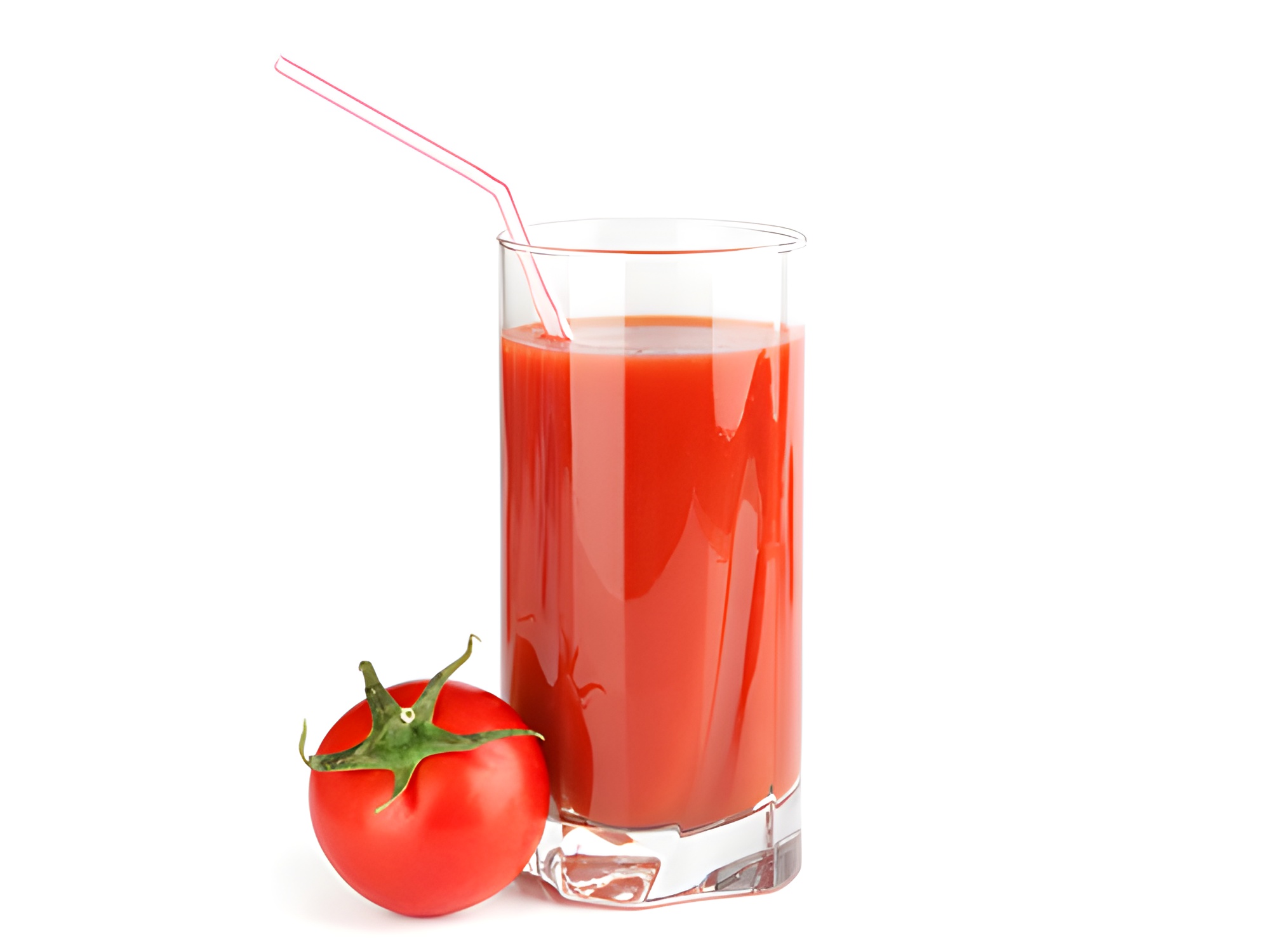
Recipe: If the juice is well tolerated, you can bring the daily rate to 100 ml of pure juice or 250 ml diluted with a third of water.
Carrot juice for pancreatitis
Carrot juice for pancreatitis. Freshly squeezed carrot juice tastes very good, in addition, it has a lot of vitamin A and beta-carotene. He brings a lot of benefits to the body: enhances vision, strengthens the immune system, normalizes fat metabolism, and prevents cells from aging. Nevertheless, during exacerbations of pathology, it can not be taken because it has a lot of sugar, and its digestion requires insulin, which is often complicated in inflammation of the pancreas. This can cause the development of diabetes mellitus.
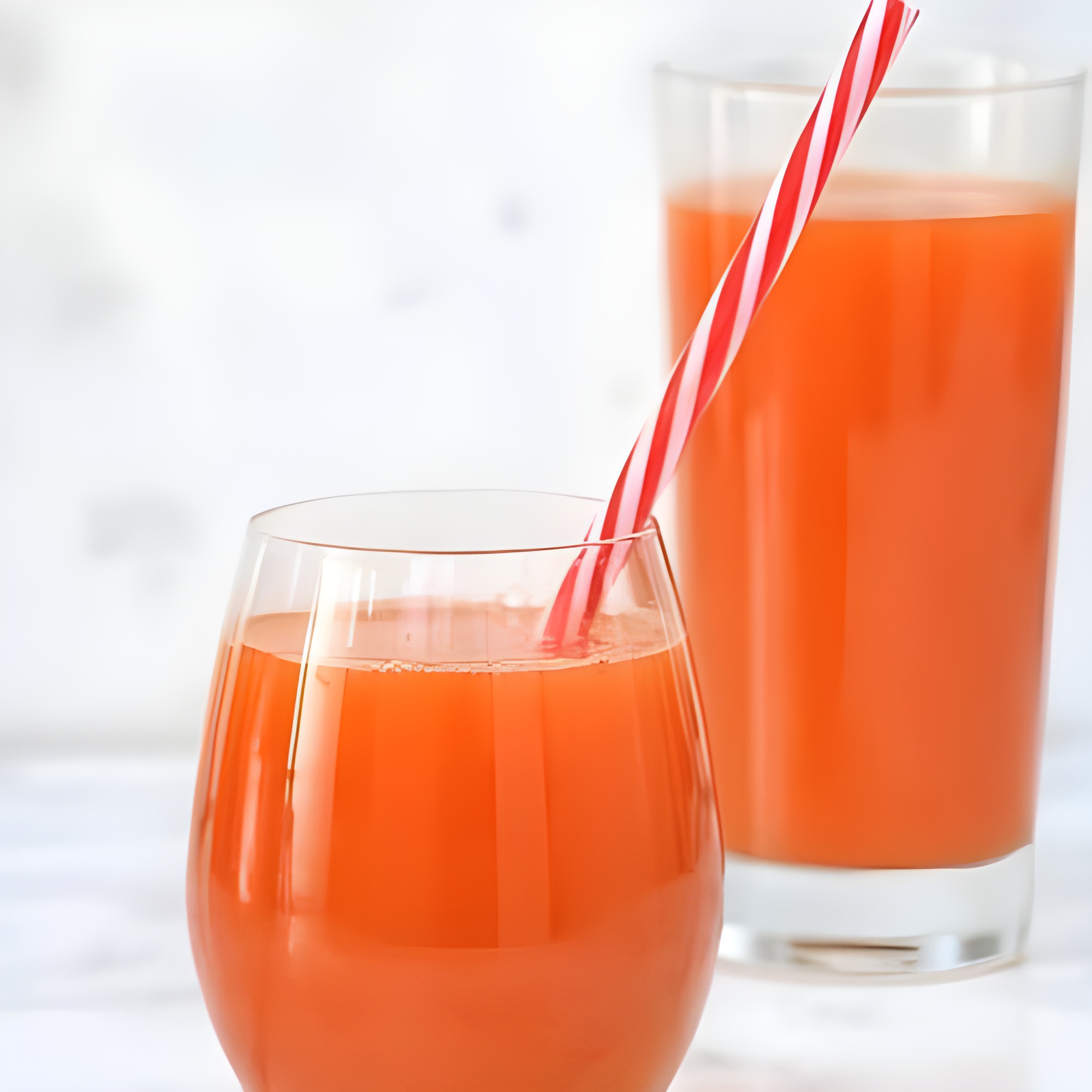
Recipe: During remission, there are no contraindications if you introduce it into the diet gradually, diluting it with water (at first 1:3, increasing progressively the concentration). Carrot juice combines well with others, which makes it possible to prepare delicious and healthy mixes on its basis. And yet it is not suitable for daily use. Half a glass 2-3 times a week is optimal.
Pumpkin juice for pancreatitis
Pumpkin juice for pancreatitis. Pumpkin is a useful product, with a peculiar taste, used even in the recipes of haute cuisine. But fresh pumpkin juice is not suitable for pancreatic inflammation. A large amount of organic acids causes fermentation in the intestines, irritating the mucosa, even more, provoking an aggravation. Only after the complete elimination of the manifestations of pancreatitis in the diet, you can carefully introduce the drink, first diluting with water or other juices, then switching to pure. Thanks to carotene it improves eyesight, potassium - strengthens the heart muscle, antioxidants - provide anti-cancer protection, and pectin - removes toxins, and harmful cholesterol. In addition, the drink is low-calorie - all this gives it the right to stay on our menu.
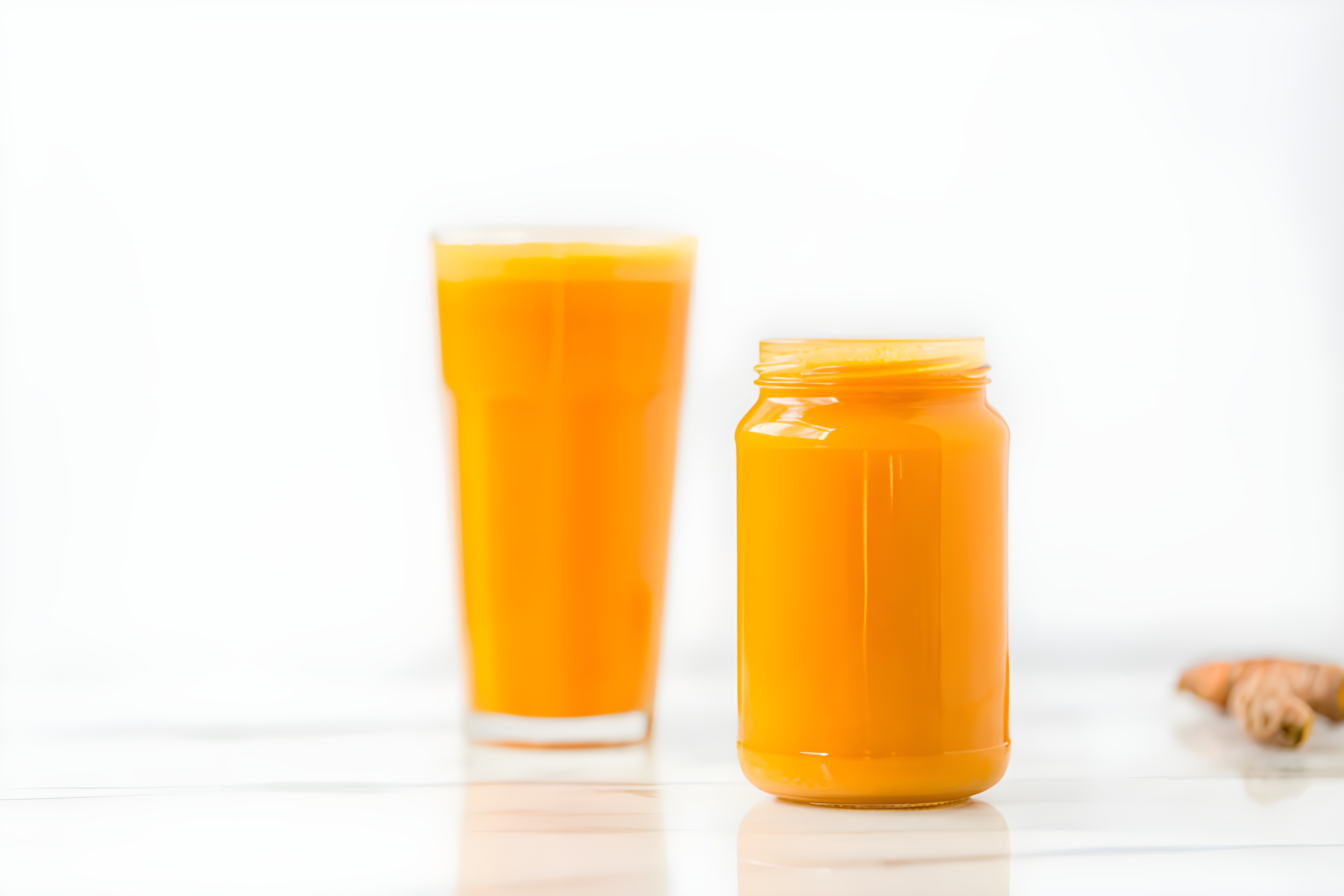
Prescription: Depending on tolerance, the maximum daily dose can range from 250-500 ml.
Pomegranate juice
Despite the many useful qualities of this fruit, pomegranate juice in acute pancreatitis is strictly forbidden.
What is suitable for a healthy person (phytoncides, 15 amino acids, antioxidants), with pancreatic inflammation will further aggravate the painful condition. Therefore, you can drink pomegranate juice only after the complete elimination of symptoms and then in diluted form.
Recipe: You can drink 200-300 ml per day at most.
Aloe juice
Aloe is popularly considered a useful herb that cures everything. Due to the content of the substance allantoin, aloe has anti-inflammatory, astringent, and anesthetic effects. These qualities give the right to present the plant in many recipes aimed at healing wounds and ulcers, therapy of the digestive tract, in dermatology, gynecology, ophthalmology, cosmetology, etc. Treatment of pancreatitis with aloe juice is based on its effect on bile secretion, which directly depends on the normal operation of the pancreas.
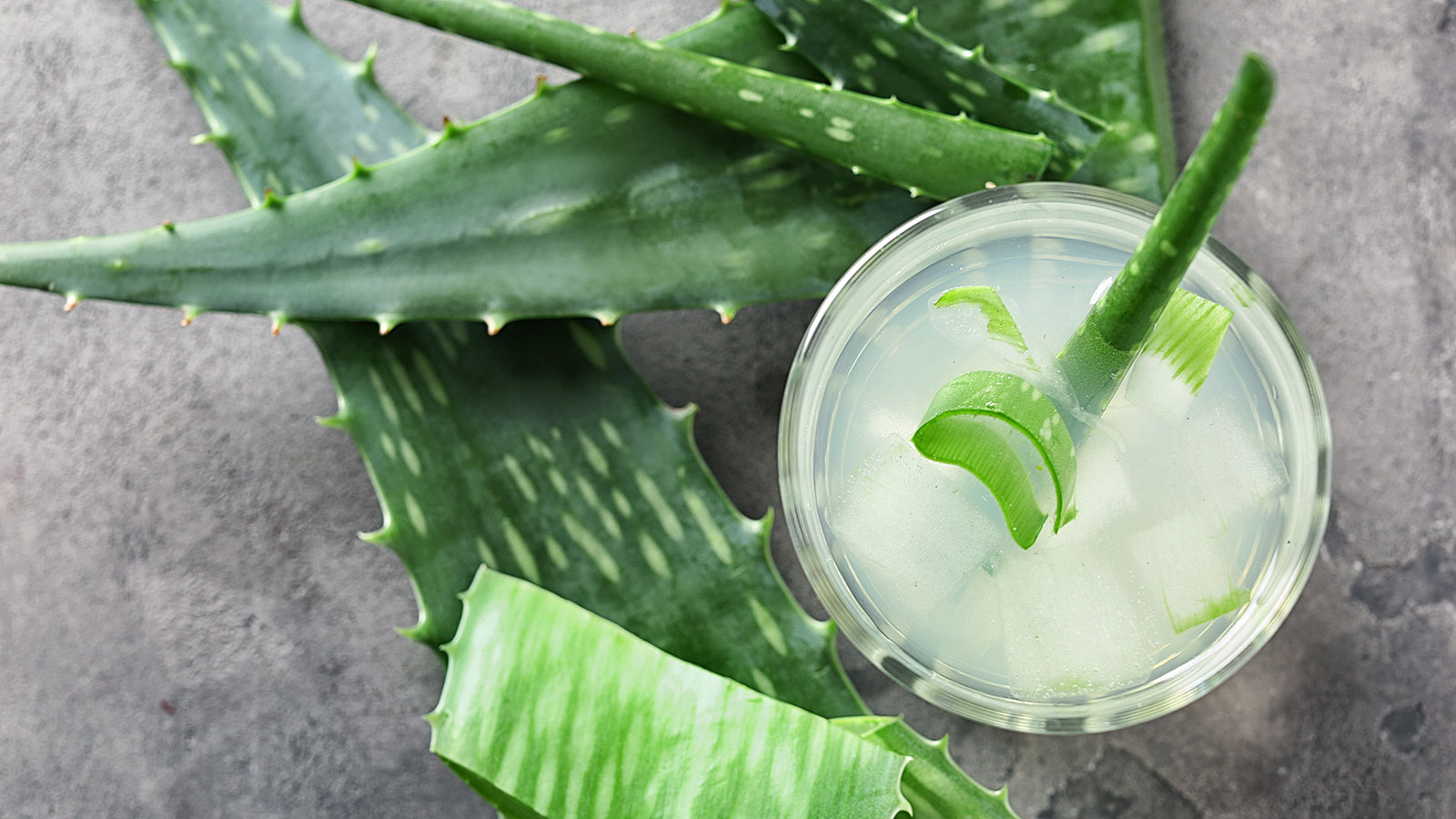 Recipe: Aloe juice in pancreatitis is used in combination with honey after the acute phase.
Recipe: Aloe juice in pancreatitis is used in combination with honey after the acute phase.
It is best to take what is known as Zabrus honey, which is in the honeycomb. To seal it, the bees use a special substance secreted by the salivary and wax glands. The composition of this honey is very useful in the treatment of various inflammatory pathologies. The mixture is prepared by mixing 1 tablespoon of honey and the same amount of aloe. Combining them, you can take them before meals, but no more than one spoon per day.
Lemons, lemon water and lemon juice for pancreatitis
At any stage of pancreatitis, doctors forbid the use of lemon, lemon water in any form because of the high concentration of acids that stimulate secretory activity of the digestive glands, dangerous in pancreatitis. Lemon also has a pronounced choleretic effect, which is considered dangerous in acute cholecystitis.
Is lemon good for acute pancreatitis?
Lemon in acute pancreatitis is strictly forbidden. The fruit contains 8% of citric acid, prohibited for digestion by a strained pancreas. Even after the pancreas attack is over, consuming lemon in any form is not a good idea.
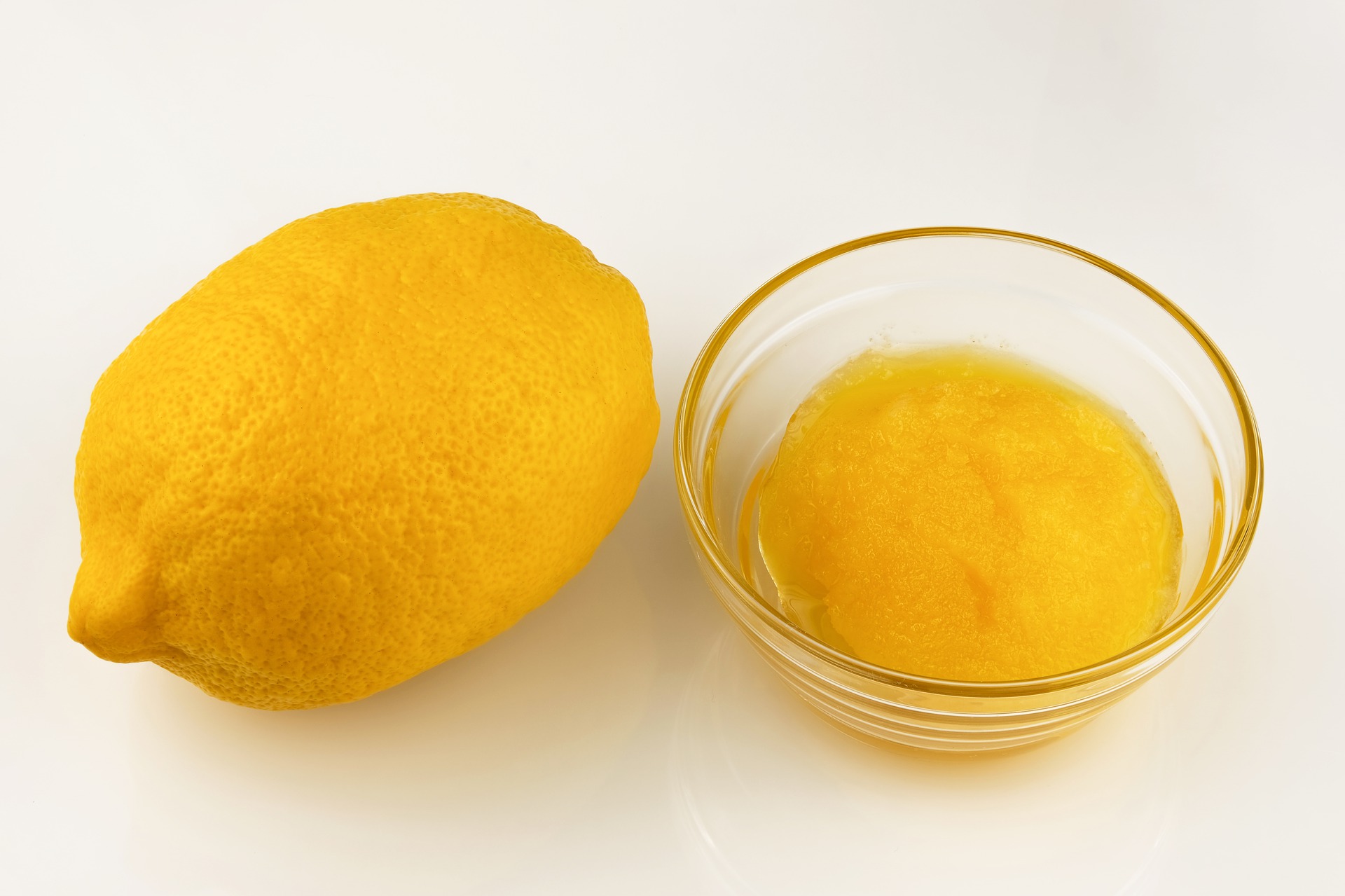
Lemons and chronic pancreatitis
The chronic form does not allow you to enjoy the citrus fruit. If you really want to, it is allowed with reservations to try dishes that include lemon in small quantities. Simply the fruit of the lemon is not eaten.
Among the typical dishes with lemon is tea with lemon, fish dishes, confectionery, marinades, and sauces. They are used for two reasons: either to sweeten or, on the contrary, to make it spicier. Both options imply the presence of harmful substances in the product.
Drinks using lemon in the recipe are forbidden. To experiment with the introduction of new products, it is advisable to wait for a stable period of remission - the known therapeutic qualities of lemon for pancreatitis do not help. If the pancreas is calm and functioning normally, it is allowed to make an attempt.
How to change lemon in pancreatitis?
Doctors recommend following a diet that includes:
- breadcrumbs;
- natural yogurts (self-made yogurts are a priority);
- olive oil (a great substitute for lemon juice and mayonnaise when you want to dress the salad);
- stewed vegetables.
How can use lemon water for pancreatitis?
After a stable remission is achieved, citrus fruits can be gradually introduced into the diet. But it must be done correctly, following these recommendations:
- Choose only fresh and ripe fruits - they should not have mold or rot;
- In the case of lesions of the digestive organs, the fruit pulp should be cleaned from the skin, seeds, and membranes - these fragments concentrate a lot of phytoncides, essential oils, and other elements that cause a relapse of the disease;
- Eat citrus fruits only after meals - eating lemons on an empty stomach provokes irritation of the mucous membranes.
Medical disclaimer
This content is for informational and educational purposes only. It is not intended to provide medical advice or to be a substitute for such advice or treatment by a personal physician. All readers of this material are advised to consult their own physicians or qualified health care professionals. UAmedTOURS is not responsible for the possible health consequences to any person or persons reading or following the information contained in this educational content. All readers of this content, especially those who take prescription or over-the-counter medications, should consult their physicians before making any changes in their diet, lifestyle, taking pills, or other facts that may affect your physical and psychological health.









